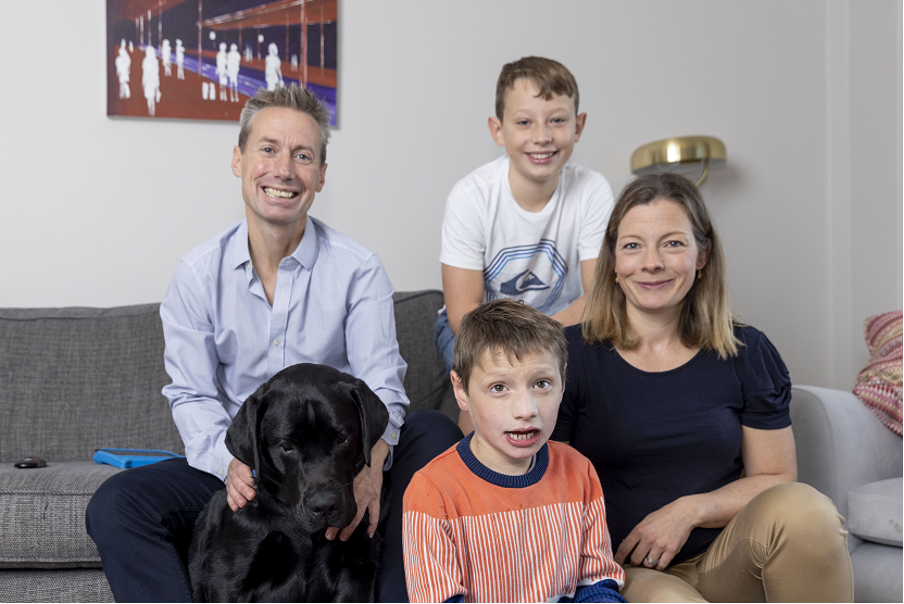
Special schools eye care: a parental perspective
The government backs the Special Schools Eye Care Service!
In June 2023 we were delighted to receive confirmation from the government that NHS sight tests will be on offer to all pupils in special schools from 2024/2025. As the article below was written when the service was in jeopardy, it may now contain some out of date information relating to future provision. Thank you to everyone who has supported the campaign, written blogs and stood firm about the benefits of the service.
After highlighting our survey of parents using the special schools eye care service, we’re very grateful for this blog from James Coney, who is dad to Charlie. Charlie has his eye tests in his special school.
James has been using his journalist platform to highlight the challenges that society presents to children with disabilities and their families.
Over to James.
The first time that my son Charlie had an eye test was when he was little over a year old.
At the time we were seeking answers as to why our precious boy seemed to have missed benchmark after benchmark: he hardly ever made a peep and was not even rolling over.
We saw a specialist at a private hospital as one of dozens of tests that he had carried out.
It baffled me how she could tell if had sight problems when he could not even communicate.
Nearly 10 years on and I'm still none the wiser. Charlie has global developmental delay and while he ba-ba-bas he does not talk. His learning difficulties mean his attention-span is limited and he can become anxious in strange environments.
He has always attended a special school in London which is where he first had his eye examined by a charity called SeeAbility. Neither my wife or I had ever heard about them before.
We took it for granted at first: getting an eye test was just one of the many functions that the school seemed to provide that made everyday life with Charlie that little bit easier - along with occupational therapy, speech and language, swimming lessons.
But as he has got older, more mobile and more challenging the service became more vital. Having an eye test in a hospital ever again seemed like a remote possibility.
Charlie has grown to despise strange environments, in an instant he can turn from affectionate and friendly, to overwrought and physical (his favourite trick is to throw himself backwards on the floor and with rigid legs, kick his shoes off). When he goes to the doctors he is instantly anxious. Getting Covid jabs required the patience and expertise of nurses who had clocked we needed to be in and out quickly.
He won't go to the hairdressers. When we need to cut his hair at home it is done one snip at a time, going back for one more every 15 minutes or so. He won't set foot in the dentist.
There is no way he will go to an optician - that's an immensely strange world - and heaven forbid what would happen if we had to queue.
Even trying to visit would be two-man job, with my wife and I having to man-mark him into the building. That means it becomes yet another trip that removes one of us away from our other son.
It's hard for those who do not come in to contact with learning disabled children regularly to understand how onerous the challenge would be - added to a world where every small task is challenging.
Having SeeAbility test Charlie's at his school means he can have it done in a safe and familiar environment among professionals who know how to manage his emotions.
Thankfully there is nothing amiss with his vision.
Losing this opportunity probably means fewer eye tests for children like Charlie. Without them I'm uncertain how we would ever spot that his eye-sight was deteriorating, if it did.
I still don't know how they do it, I'm just eternally thankful that they do.
Credit: James Coney is news projects editor at the Sunday Times.
Image description: Clockwise are James, William, Sarah and Charlie, and Huxley the labrador (picture credit: The Sunday Times)
You can follow James on Twitter at @jimconey


